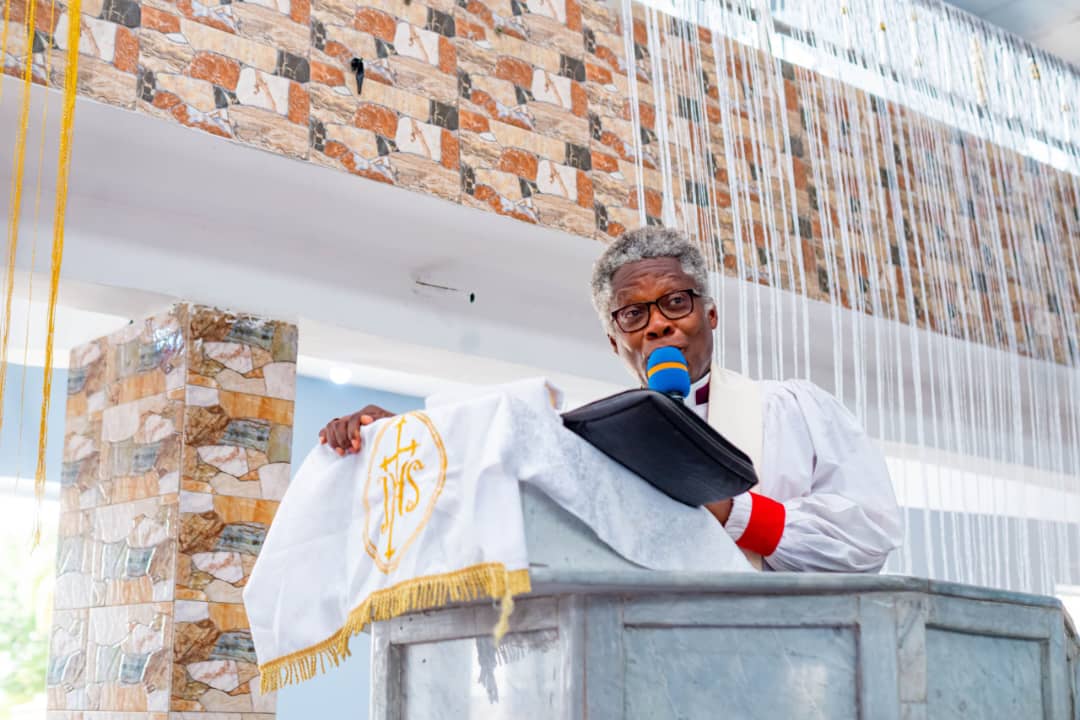Niger Delta
‘5,880 Households Get More Earning Power’
Toward achieving the Millennium Development Goals of poverty reduction, more than 5,880 households in Cross River State have been elevated from poverty status to an income earning point, Mr Roy Ndoma-Egba, Special Adviser to the Cross River Governor on National Donor support, made the disclosure in an interview with newsmen in Calabar on Monday.
He said that the achievement was made through the Conditional Cash Transfer Programme (CCTP) of the state government.
He said CCTPwas an initiative through which the government raised people from extreme poverty status to an income earning point to achieve livelihood and income generating activities.
Beneficiaries of the programme are people who cannot afford the least education for their wards and have no access to health services, the official said.
He said beneficiaries earned N12, 000 monthly but the government dispensed N5, 000 and saved N7, 000 for them to open businesses at the end of the year.
Ndoma-Egba said the state embarked on the project in a bid to alleviate poverty especially in the grassroots and to meet its MDGs target.
“Our efforts towards reducing extreme poverty are very significant because we are very ambitious in Cross River State, very focused on our efforts of achieving the MDGs.
“We are currently driving the Conditional Cash Transfer Programme which started in 2008, with a total of 2,940 households on the 2009 CDS and then another 2940 that we started within 2008.
“So, we have close to about 5,880 households benefitting from the programme.”
Ndoma-Egba said that another group of 2,940 households were being sponsored by development partners through the office of the Senior Special Assistant to the President on MDGs.
He expressed the hope that the programme would benefit 45 households in every ward of the state by the year 2012.
“We hope that before the end of 2012, we should be doing at least 45 households per political ward because the baseline in 2008 gave each political ward an average of at least 50 households.
“So, we can move people from extreme poverty to income earning families to have savings that will enable them migrate to livelihood levels and then move towards an enterprise family.’’
The official said that the state Ministry of Social Welfare had designed a programme to train people on specific livelihood opportunities to empower them to set up income generating activities.
He said the government in its commitment to rural development, had provided hotlines to all communities for easy communication and a feedback strategy to monitor projects in the state.
“The hotlines are a number of telephone lines that the community members can call to report on the progress of work. It enables the communities to engage policy makers on what is going on which is very innovative.”
Ndoma-Egbasaid that community development was a participatory venture in the state where communities took ownership of all interventions and programmes of the government.
In the health sector, the official said the state had achieved great strides.
“We have achieved a 100 per cent immunisation in the health sector and in terms of de-worming, we are doing over 87 per cent.’’
Niger Delta
Bipi Celebrates Gen Asabuja On Birthday

The Rivers State Commissioner for Urban Development and Physical Planning, Rt Hon Evans Bipi, has eulogised Gen Gabriel Asabuja over his recent birthday celebration in Port Harcourt.
Bipi said Asabuja is worth celebrating following his numerous contributions and support to the administration of Governor Siminalayi Fubara.
He described Asabuja as a strong pillar of governance in Rivers State, adding that the Ministry of Urban Development and Physical Planning is happy working with him.
He noted that Asabuja’s position as a team leader of the Ministry’s taskforce has been amazing, saying the Ministry is proud associating with him.
The former lawmaker hinted that since Asabuja assumed office as leader of the taskforce, the Ministry has witnessed tremendous improvement.
Bipi said the Ministry will always stand by him to ensure that the dreams of the Governor Fubara-led government are achieved.
On his part, the celebrant, Gen Gabriel Asabuja expressed gratitude to God and the Commissioner for the honour done him.
Gen Asabuja also commended Governor Fubara for his tremendous and good leadership in the State, saying his group will continue to give the Governor maximum support in order to achieve more for Rivers people.
Gen Asabuja described Rt Hon Evans Bipi as one of the best brains working with the Governor, saying under Bipi, the Ministry of Urban Development and Physical Planning has shown capacity to leverage on the Governor’s mantra of Rivers First.
He said both the personnel of the Ministry, the Directors and adhoc staff are happy with his style of leadership.
Niger Delta
Joint Provincial Council, East Of The Niger Salutes Diocese Of Evo

The Joint Provincial Council, East of the Niger, Anglican Communion, held its 2025 Annual General Meeting at St. Michael’s Church, Rumuomasi Deanery, Diocese of Evo from Saturday 15th — Sunday 16th February, 2025.
The meeting which had the theme, “Kept By His Mercies”, with text from Lamentations 3:22-23, had the Archbishops, Bishops, their wives, Chancellors, Financial Secretaries and Synod Clerical Secretaries of the 58 Dioceses as delegates.
At the opening ceremony on Saturday, the Dean of the Church of Nigeria (Anglican Communion) and Chairman of the Council, Most Rev Blessing Enyindah, charged delegates to stay focused and committed to the matters for discussion and implement decisions reached for the growth of the Church in the region and the advancement of the business of God’s Kingdom.
Most Rev Enyindah, who is also the Archbishop of the Niger Delta Province and Bishop of the Diocese of Ikwerre, lauded the Diocese of Evo for the giant strides recorded in just 15 years of existence while tasking the leadership not to rest on its oars but to strive further to complete the work of the Kingdom in their hands.
Addressing the council in his welcome address, the Bishop of the Diocese of Evo and host of the Joint Council, The Rt Rev Innocent Ordu, welcomed the delegates, and reminded them that the theme is apt and fit as it reminds the Church of God’s inexplicable and instructible mercy towards mankind, which supersedes His righteous judgements.
Bishop Ordu further lamented the many challenges bedeviling the country, such as skyrocketing cost of living, ravaging sicknesses and ailments, proliferation of harmful drugs, natural disasters, high level corruption in public offices, inept political leadership, amongst others, which he said could not consume mankind because of God’s mercies.
In their separate speeches, delegates saluted the Diocese of Evo for willingly accepting to host the council and the comfort they enjoyed during their stay.
Earlier, the council appointed the Synod’s Clerical Secretary of the Diocese of Evo, Rev (Canon) (Dr) Ebenezer Owhor as the Assistant Secretary of the Joint Council.
Also, before the commencement of plenary, the women of St. Michael’s Church, Rumuomasi Deanery thrilled delegates to good traditional tunes and dance steps while His Royal Highness Eze( Sir) Raymond Chinda led the chiefs and elders of Rumuomasi community in Oropotoma Kingdom, to appreciate the council for choosing the community to host the meeting.
They solicited for prayers of peace, unity and development from the council.
The meeting ended on Sunday evening while the Archbishops and Bishops worshipped in various churches in the Diocese of Evo.

